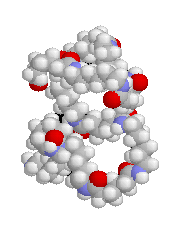Polymers in Construction: Stronger, Less heavy, and More Long lasting
Polymers in Construction: Stronger, Less heavy, and More Long lasting
Blog Article
Checking Out the Varied Applications and Advantages of Polymers in Different Industries
Polymers, with their varied range of residential properties and capabilities, have actually become important in numerous markets, each enjoying one-of-a-kind benefits from their application. From boosting safety and performance in the vehicle sector to transforming clinical gadgets in the medical care industry, polymers play a crucial function.
Automotive Industry Applications
Polymers play a pivotal role in improving the performance and resilience of various parts within the vehicle industry. One prominent usage of polymers in the automobile industry is in the manufacturing of light-weight components.

Healthcare Sector Advantages
In numerous healthcare applications, the benefits of using polymers are extensively identified for their diverse array of helpful residential properties. Polymers play a crucial function in the healthcare industry as a result of their versatility, biocompatibility, and cost-effectiveness. One of the primary advantages of polymers in medical care is their ability to be customized to particular requirements, such as adaptability, longevity, and biodegradability, making them suitable for a broad array of medical applications.
Polymer-based products are thoroughly utilized in clinical gadgets, such as catheters, implants, prosthetics, and medicine shipment systems, due to their biocompatibility and capability to mimic natural tissues. These products can lower the risk of allergies or beings rejected, improving patient security and results. Furthermore, polymers are light-weight, making them suitable for wearable clinical tools and guaranteeing patient convenience.
Moreover, polymers allow the advancement of innovative therapy techniques, such as hydrogels for cells design and nanocomposites for targeted medication delivery. Their convenience of processing and sanitation makes them important for keeping high criteria of health in healthcare setups. Generally, the varied benefits of polymers add substantially to improvements in medical innovation and client care.
Environmental Advantages of Polymers

Additionally, polymers can contribute to power financial savings because of their light-weight nature. In sectors such as transportation, light-weight polymer materials can help minimize gas consumption and greenhouse gas discharges. Additionally, polymers can allow the advancement of energy-efficient products such as insulation products that boost energy conservation in buildings.
In addition, polymers play an essential role in reducing water pollution. For example, using polymer-based filtration systems can successfully get rid of pollutants and pollutants from wastewater, securing water sources and communities. Generally, the ecological advantages of polymers make them useful assets in advertising sustainability and environment-friendly practices across numerous industries.
Polymers in Electronics and Innovation
Thinking about the raising demand for cutting-edge and sustainable options in contemporary industries, the assimilation of innovative polymer technologies in the world of electronic devices and innovation has become a pivotal method for driving efficiency and efficiency. Polymers have revolutionized the electronics industry by making it possible for the manufacturing of lighter, more adaptable, and durable digital gadgets. From top article mobile phones to medical devices, polymers play an important duty in improving product style and performance.
One substantial benefit of polymers in electronic devices is their insulating properties, which help protect delicate digital components from ecological factors and electric interference. In addition, read polymers are vital in the development of flexible displays, wearable modern technology, and printed electronic devices, supplying unlimited possibilities for developing wise and interconnected devices.
Moreover, the use of polymers in digital product packaging has actually caused developments in miniaturization and thermal monitoring, enhancing the total performance and reliability of digital systems. As modern technology remains to advance, the adaptability and flexibility of polymers will undoubtedly drive better innovation in the electronics sector, forming the future of technology.
Duty of Polymers in Building And Construction and Framework
The integration of innovative polymer products in construction and framework projects has transformed the method structures are designed and developed in contemporary times. Polymers offer various benefits in the building and construction industry due to their convenience, longevity, and cost-effectiveness. One key duty of polymers in building is their use in layers and sealants, giving protection versus environmental elements such as moisture, UV radiation, and corrosion. In addition, polymers are made use of in the manufacturing of light-weight and high-strength composite products, enhancing the structural honesty of buildings while minimizing general weight.
Moreover, polymers play an important function in lasting building practices by making it possible for the advancement of energy-efficient structures. Protecting products made from polymers assist control interior temperature levels, reducing the requirement for heating and cooling down systems and ultimately lowering power usage - Polymers.
Conclusion
In final thought, polymers play a crucial role in various sectors such as automotive, healthcare, ecological, electronics, and building and construction. From enhancing gas effectiveness in cars to enhancing medical devices, polymers use numerous benefits.
Report this page